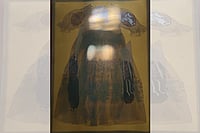“We women... are becoming like court jesters. We tell the horrible truth, everyone smiles in polite agreement, but it has no impact”, writes Mrinal Pande in this collection of newspaper columns. Impatient with easy assumptions about India’s forward march, she doesn’t pull her punches. An example: “the milk of human kindness was never more tax deductible!” (My personal favourite is the [Mallika] ‘Sherawatting’ of the women’s rights movement.)
Pande raises important questions about language and power. She points at the joints in the twisted body of the nation to show how one set of problems feeds off, and bleeds into, another set. For instance, child marriages in Rajasthan are not just about tradition and patriarchy but also extreme poverty.
Pande illuminates the links between linguistic racism, urban feminism and an unethical media when talking about women like Prabha Devi, the only woman barber in her village, and Lad Kanwar, who explains why maternal mortality doesn’t hit the headlines the way farmer suicides do. There are all-too-brief forays into economic home truths, via tamancha (small desi firearm) manufacture in UP, a priest shortage in Maharashtra, Agra’s ailing ambulances, and Mineral Water Baba. One wishes the book had more of these.
If only Pande’s writing could be taken out of the column straitjacket. All this book needed was to be treated like a book in its own right.


























